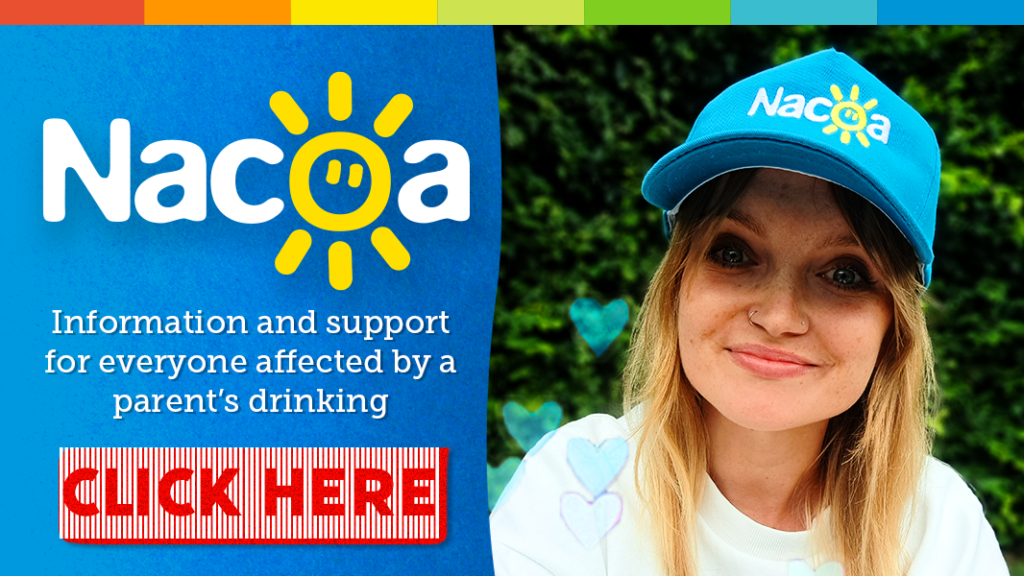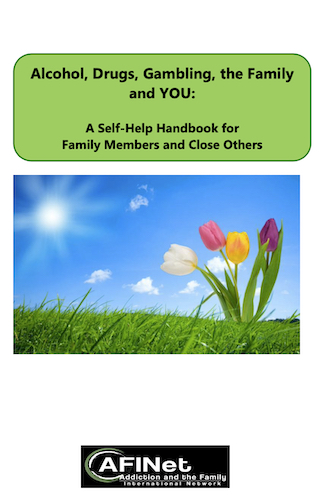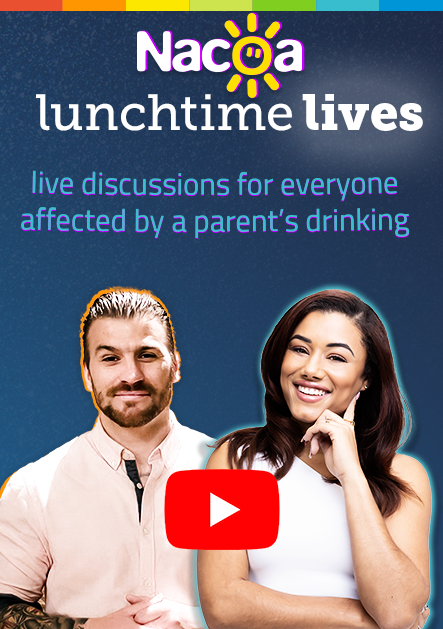

The Laundry List for Adult Children of Alcoholics
How are you affected by parental alcohol misuse?
For many adult children of alcoholics (ACOAs), recognising the impact of growing up in a household with parental alcohol problems can be a life-changing moment. You can spend years thinking your feelings, behaviours, and struggles were unique to you—signs of being broken or flawed. But you are not alone.
At Nacoa UK, we often hear from people who find immense relief in discovering the ACOA Laundry List from Adult Children of Alcoholics—a set of common characteristics many adult children share. Created by Tony A., one of the founders of the Adult Children of Alcoholics movement, the list provides words for what often felt indescribable.
Let’s walk through some of these traits, gently and honestly, and explore what they can mean.
1. Isolated and afraid of people and authority figures
You may find social situations exhausting or overwhelming. A simple request from a manager or teacher might spark disproportionate fear. This can stem from unpredictable or unsafe dynamics growing up—where authority meant danger, not safety.
2. Approval seeking and loss of identity
When love felt conditional, you may have learned to shape-shift to survive. People-pleasing becomes second nature. You might struggle to say no or even know what you want—because approval, not authenticity, was your lifeline.
3. Frightened by angry people and any personal criticism
If anger in your childhood household meant volatility or violence, even mild frustration from others today can feel terrifying. Your brain learned to be on high alert. This is not weakness. It’s survival.
4. Become addicted, marry addicted people, or both
Without realising it, we often recreate familiar patterns in adult relationships—seeking what feels known, not what feels safe. The cycle can continue until we understand it, grieve it, and begin to choose differently.
5. Live life from the viewpoint of victims
You might find yourself in relationships where you feel powerless, or responsible for fixing someone else’s problems. It’s not because you want drama—it’s because caretaking was your early role. You deserved to be cared for too.
6. Overdeveloped sense of responsibility
Putting others first may have been how you stayed safe or received praise. Now, it may feel selfish to prioritise yourself. But it’s not selfish—it’s necessary.
7. Feelings of guilt when standing up for yourself
Setting boundaries can feel wrong—even physically uncomfortable. This is often a sign that you’re healing. Healthy people will respect your limits.
8. Becoming addicted to excitement
Chaos may feel like home. You might unconsciously create drama or find calmness unbearable. This doesn’t mean you’re broken. It means your nervous system adapted to instability.
9. Confusing love and pity
Many ACOAs learned that love was tied to pain, to fixing, to enduring. But love doesn’t need to hurt. Real love is mutual, safe, and sustaining.
10. Stuffing down feelings / lose ability to feel or express feelings
You might not even know what you’re feeling sometimes. Emotional numbness is a common and protective response to trauma. With time, safety, and support, feelings can return—and you’ll learn they don’t have to overwhelm you.
11. Judge yourself harshly and very low self-esteem
That inner critic? You didn’t create it alone. It often echoes voices from childhood. Learning to speak to yourself with kindness is revolutionary—and possible.
12. Become a dependent personality terrified of abandonment
Fear of being left can lead us to tolerate mistreatment, stay silent, or cling. But we can learn to value ourselves enough to stay only where we are truly seen.
13. Take on the characteristics of addiction
You do not have to drink to be crucially involved in the family dysfunction. The impact of growing up with addiction affects thoughts, emotions, and behaviours. But healing is real—and recovery is for you, too.
14. Reacting rather than an acting
You may find yourself constantly responding to the world, instead of intentionally shaping your life. But the truth is—you can choose. You are not doomed to repeat the past.
There is Hope!

At Nacoa UK, we believe healing starts with being heard and understood. The Laundry List is not a diagnosis. It’s a mirror—a compassionate one. And it reminds you: you’re not alone, and you’re not crazy.
Many ACOAs find strength and clarity in support groups, therapy, or simply by connecting with others who understand. Whether you recognise one item or all fourteen, know this: awareness is the beginning of change. You have already started.
You are worthy of a life that feels safe, free, and joyful.
We’re here for you.
























































































